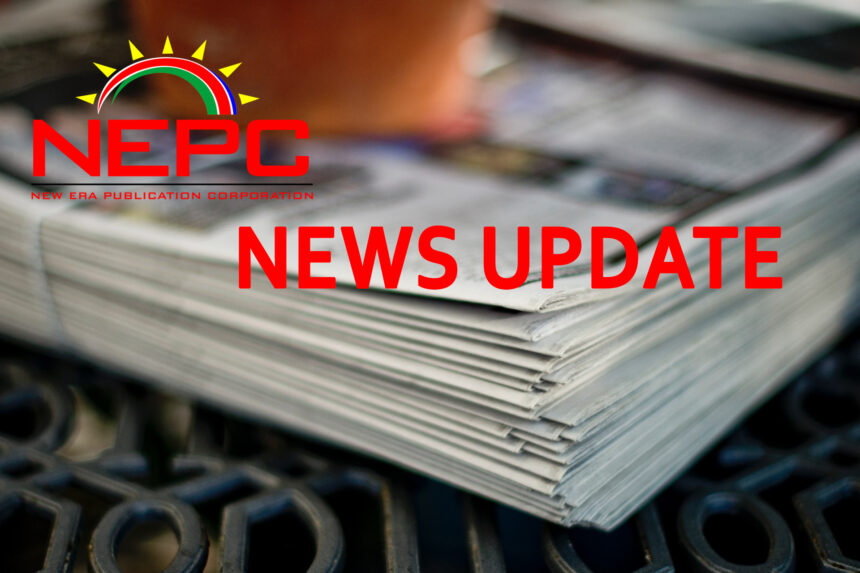The Namibian press now finds itself at perilous crossroads in its mission to uphold truth and transparency, threatened by mounting industry challenges, media experts say.
This was highlighted during a public dialogue held under the auspices of the Friedrich Ebert Stiftung Namibia (FES) with the theme ‘The Role of the Media in Promoting Democratic Elections in Namibia.’
From shrinking newsrooms,
limited resources and a lack of expertise, to growing political pressures and public distrust, the dialogue highlighted how the very essence of journalism faces a profound test. Speaking on the status of the mainstream media in Namibia, independent researcher Christie Keulder said the media is going through a difficult period, grappling with challenges such as declining financial security of media outlets, and the rise of social media.
“Any business that is struggling financially has to implement measures to try and sustain itself. The labour force in such organisations diminishes, and senior journalists are often asked to leave, which results in newsrooms being left with junior staff, people with less experience, or sometimes even interns who are forced to handle critical news, which can be stressful,” he emphasised.
He also pointed to inadequate mentorship programmes within media houses and financial insecurity for journalists, many of whom are either working for very little, or are bound to restrictive contracts.
This significantly affects the quality of news, ultimately hindering democratic processes and eroding public trust.
Addressing the issue of declining revenues, Keulder added, “There is also a challenge in our economy where individuals are struggling with income, and media consumption may become a luxury at some point.”
This is exacerbated by the closure of many small and medium enterprises, while others opt for social media advertising, rendering newspaper ads less viable.
Elections
With only two months until the country heads to the polls, members of the Fourth Estate have a critical role in ensuring transparency and fairness in democratic elections by acting as a conduit between the electorate and the political arena.
However, the media’s readiness for this process remains questionable.
Tabani Moyo, the regional director of the Media Institute of Southern Africa (MISA), expressed concern that journalists may
face challenges as they are expected to engage in technical aspects of elections such as data expertise, checks and balances, and analysis. However, with limited investment in the craft, they might not be able to execute that responsibility effectively.
“There is a need to empower the media so that it can perform its roles in a manner that meets the expectations of the general public,” he added.
Although Namibia is already in election season, Moyo said the media is poorly-positioned to cover the entire election cycle.
“The media is not structured to take a long-term approach. There are issues of generalisation in media houses, and most journalists covering the elections might be doing so for the first time. Yet, there is a legitimate expectation that the media should remain a viable marketplace of ideas. However, if you consider technical topics like election financing or procurement of election materials, these can be challenging for many junior journalists to engage with,” he observed.
Moyo said in other countries in the region, journalists often opt for simpler topics which don’t require deep analysis.
Adding to the discussion, journalist Shellygan Petersen pointed out that on election day, journalists are expected to be at nearly every polling station, despite many media houses being understaffed.
“The quality of the output depends on the quality of the journalist. Do you have an understanding of what elections mean? Many of us have not been in the newsroom for more than four years, which means we haven’t covered previous elections. We saw them as voters, not as journalists, and there’s a lot to pick up as a journalist before and after elections,” she stated.
She also opined that the quality of journalism is severely affected by the challenges journalists face.
Another issue she raised is the lack of access to information.
Using the example of the Electoral Commission of Namibia (ECN), Petersen said the entity often takes a long time to respond to journalists’ enquiries, sometimes taking more than a month to provide answers, which poses another significant challenge.
Way forward
To ensure the media’s role in upholding democratic processes during elections, Moyo called for investments in the industry, training for journalists and efforts to build public trust, despite the multifaceted challenges. “Also, democratise access to information and the ability to contextualise it,” he added.
Meanwhile, Keulder noted that as the nation gears up for the upcoming Presidential and National Assembly elections, there is an expectation of political abuse targeting journalists, researchers and analysts. “Therefore, media houses must ensure that the information they provide is accurate, as there will be a lot of scrutiny. I don’t anticipate any media engagements from political parties, which will also hinder access to information,” he said.
Petersen, on the other hand, urged editors to collaborate with journalists in delivering news, and for media houses to conduct in-house training to ensure journalists cover the elections effectively.



